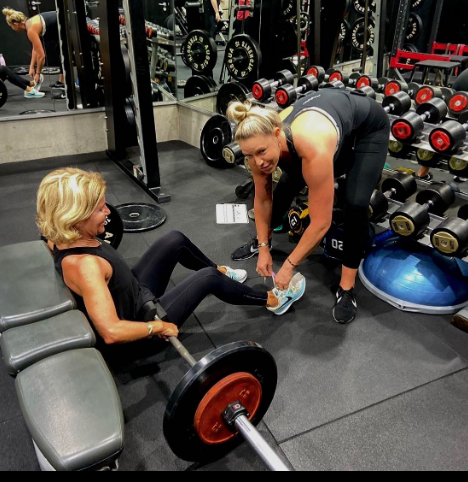
Training and Weight Loss
In terms of weight loss, your nutrition will have the biggest influence on HOW MUCH WEIGHT you lose. However, your choice of exercise has the biggest influence on the TYPE OF WEIGHT you lose.
Weight loss is achieved through energy balance, i.e., energy in versus energy out. However, we shouldn’t be looking to burn as many calories as we can through exercise, rather being able to burn more energy at rest and with increased daily activity.
So many people rely on cardio training “as a way to burn calories and fat.” Unfortunately for all that hard work, not much comes from it. Our bodies are adaptation machines and in terms of cardio, our bodies adapt very quickly to this type of training. Meaning over a very short period of time (3 – 4 weeks), we end up burning less calories for the same amount of time and intensity. This means we must continue to spend more and more time to achieve the same amount of calorie burn. What a bummer!

This isn’t to say not to include cardio training in your training week, but to do it for your cardiovascular fitness and health, not for weight loss or for ‘burning off’ any food you’ve eaten. Walking is the preferable form of cardio as the low intensity means we are tapping into our fat stores, rather than the carbohydrates we use for energy at higher intensities.
Instead, we should be looking at incorporating more resistance training into your training routine. If we build more muscle mass, we burn more energy at rest and our metabolism increases. Voila, we have just adjusted your energy balance which contributes to weight loss, but also making sure the weight we lose is FAT and not MUSCLE!
Resistance training is the only modality of training that sends a very strong muscle-building signal to the body. Unfortunately, when most people lose weight, they are not only losing body fat, but they are also losing muscle mass, and this can be devastating to the metabolism, especially if we fall into the yo-yo dieting trap. Following a resistance training program during weight loss will prevent this from happening.
Not only that, but there are so many different variables that we can manipulate when it comes to our resistance training programming such as sets, reps, load, tempo, rest, time under tension and supersets that we don’t become adapted and we don’t need to spend more and more time training like cardio to achieve our desired results.
Resistance training is the superior form of training when it comes to improving your overall health and well-being. I do encourage my clients to include multiple modalities of exercise in their training protocol and all modalities have their benefits, but nothing comes close to resistance training.
Some Benefits of Resistance Training
1. Faster metabolism
2. Reduced body fat
3. Increased strength
4. Improved mental health, including improving effects of anxiety and depression, slowing, and halting the effects of Alzheimer’s and dementia
5. Increased bone density
6. Balanced hormones
7. Increased testosterone
8. Increased growth hormone
9. Improved mobility and flexibility
10. Strengthens tendons, ligaments, and joints
11. Improved coordination
12. Anti-ageing effects
13. Healthy sex drive
14. Less pain
15. Less injury
16. Increased insulin sensitivity and carbohydrate metabolism
17. Reduced risk of heart disease
18. Improved blood pressure
19. Improved cholesterol
20. Reduced visceral fat
21. Better sleep







































